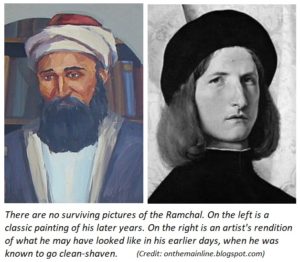The Jewish Pirate Who Conquered Brazil
Moses Cohen Henriques (b. 1595) was born to a family of Sephardic Jews who had been forcibly converted to Christianity. The family eventually made their way to Amsterdam and returned to their Jewish faith. Henriques joined the Dutch navy, and rose up through the ranks to be the right-hand man of famed Dutch admiral Piet Hein. Together, they defeated the Spanish fleet off the coast of Cuba in 1628. Following this, Henriques went to scout the Portuguese colony of Pernambuco, Brazil as a spy, to prepare for a Dutch invasion. He was part of that invasion in 1630, leading a contingent of 3000 men to successfully capture the colony. Henriques helped to turn the area into a Jewish refuge, bringing in America’s first rabbi, and establishing the first synagogue, mikveh, and yeshiva in the New World. When the Portuguese recaptured the colony in 1654 and restarted persecution of Jews, Henriques fled along with the rest of the Jewish community. To survive harsh times, he was forced to become a pirate, soon joining the infamous Henry Morgan. He became Sir Morgan’s trusted advisor. Henriques later ventured on his own, establishing a pirate island off the Brazilian coast. The Inquisition sought to capture him for years, unsuccessfully, and Henriques saw it as his mission to avenge the evil that the Spanish and Portuguese had done to the Jews. After the English conquered Jamaica, Henriques settled there and lived out the rest of his life on the island, helping to establish its Jewish community. When his old friend Henry Morgan became Jamaica’s governor, he gave Henriques a full pardon for piracy in 1681.
Words of the Week
The Jews are our chief supplyers in Barbadoes, and would sell very cheap, and give one not seldom two years to pay, by which credit the poorer sort of planter did wonderfully improve their condition.
– Sir Thomas Modyford (d. 1679), English governor of Barbados and Jamaica
*The biography above is adapted from Jewish Pirates of the Caribbean, by Ed Kritzler.


 Don Manuel Pimental (d. 1615) was born to a family of Sephardic Jews who had been forced to convert to Christianity in the decades prior. Pimental became a wealthy merchant, trading with the Muslims under the name Isaac ibn Jakar. He soon converted back to Judaism, and did a lot of work on behalf of the many struggling Jewish communities at the time. Despite the ban on Jews living in France, he settled there anyway and became best friends with King Henry IV. The two played cards together regularly, and it is reported that after one 1608 game in the palace, King Henry said: “I am the king of France, but you are the king of gamblers!” Many didn’t like the fact that the king was so close to a Jew, but Henry defended his friend with the following words: “Those who honestly follow their conscience are of my religion, and mine is that of all brave and good men.” A couple of years later, a Catholic fanatic assassinated King Henry IV for being too friendly with Protestants and Jews. Pimental had to flee, and spent three years in Venice. He then joined his friend Samuel Pallache, the famed “
Don Manuel Pimental (d. 1615) was born to a family of Sephardic Jews who had been forced to convert to Christianity in the decades prior. Pimental became a wealthy merchant, trading with the Muslims under the name Isaac ibn Jakar. He soon converted back to Judaism, and did a lot of work on behalf of the many struggling Jewish communities at the time. Despite the ban on Jews living in France, he settled there anyway and became best friends with King Henry IV. The two played cards together regularly, and it is reported that after one 1608 game in the palace, King Henry said: “I am the king of France, but you are the king of gamblers!” Many didn’t like the fact that the king was so close to a Jew, but Henry defended his friend with the following words: “Those who honestly follow their conscience are of my religion, and mine is that of all brave and good men.” A couple of years later, a Catholic fanatic assassinated King Henry IV for being too friendly with Protestants and Jews. Pimental had to flee, and spent three years in Venice. He then joined his friend Samuel Pallache, the famed “ Moshe Chaim Luzzatto (1707-1746) was born in Padua, Italy to a wealthy Sephardic family. He studied under some of the great Italian rabbis of the time and was quickly recognized as a prodigy, receiving rabbinic ordination himself while still a teenager. He also took up studies at the University of Padua, and by the time he was just 20 years old had complete mastery of Torah, Talmud, and Kabbalah (Jewish mysticism), as well as philosophy, medicine, and alchemy. He had also written a textbook on Hebrew language and grammar, Leshon Limmudim (predating
Moshe Chaim Luzzatto (1707-1746) was born in Padua, Italy to a wealthy Sephardic family. He studied under some of the great Italian rabbis of the time and was quickly recognized as a prodigy, receiving rabbinic ordination himself while still a teenager. He also took up studies at the University of Padua, and by the time he was just 20 years old had complete mastery of Torah, Talmud, and Kabbalah (Jewish mysticism), as well as philosophy, medicine, and alchemy. He had also written a textbook on Hebrew language and grammar, Leshon Limmudim (predating 